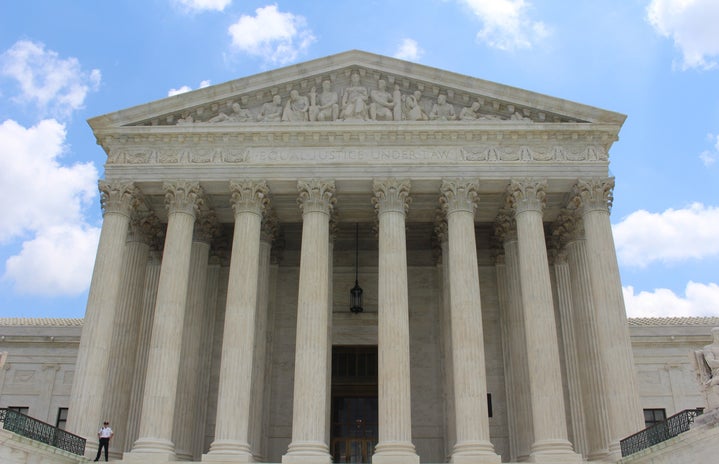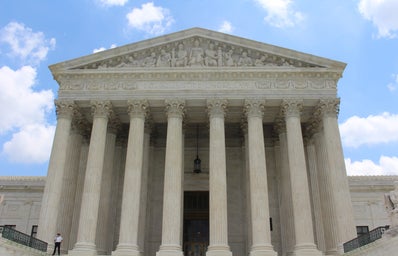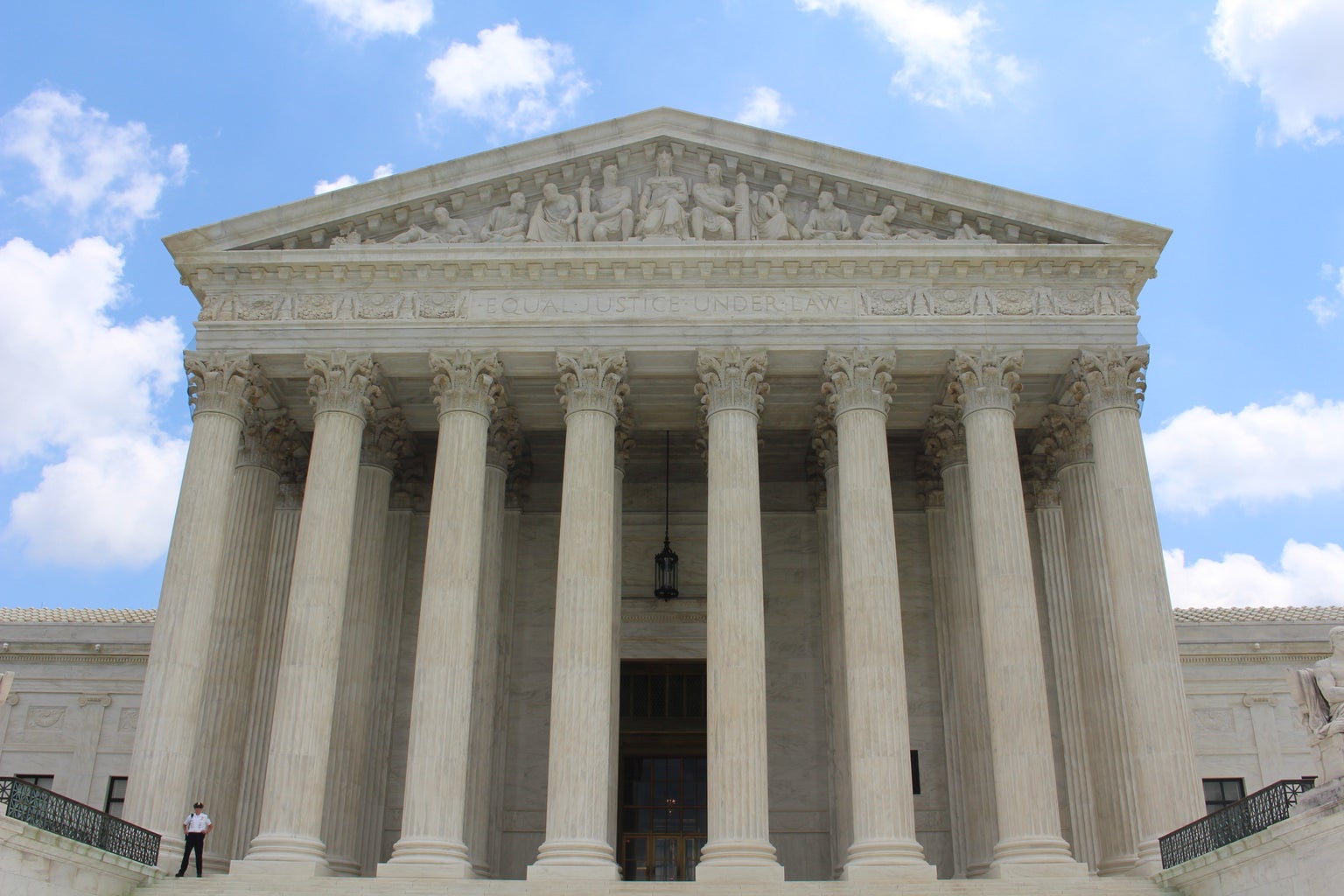Two U.S. Supreme Court docket cases, Students for Fair Admissions v. President and Fellows of Harvard College and Students for Fair Admissions v. University of North Carolina, are the most important cases for college admissions today. These cases question the use of race-conscious college admissions, a practice that has been consistently challenged by the Supreme Court for the last 60+ years. Students For Fair Admissions (an organization created and led by anti-civil rights activist Edward Blum) is now bringing race-conscious college admissions back to the courts, claiming the diversity-ensuring practices of Harvard and UNC are unconstitutional and in need of serious judicial review. These cases are two of the most important Supreme Court cases for college students yet, and here’s why they should be on your radar.
what ARE race-conscious college admissions?
Race-conscious college admissions refer to policies and practices that take into account an applicant’s race or ethnicity when deciding to admit a student. This can involve a range of approaches, from affirmative action programs that provide preferential treatment to underrepresented minorities, to holistic review processes that consider an applicant’s racial or ethnic background as one factor among many. Supporters of race-conscious admissions argue that they are necessary to ensure on-campus diversity. On the other hand, critics argue that race-conscious admissions policies are discriminatory and violate equal protection under the law.
Past Supreme Court cases have drastically impacted the ways that race-conscious college admissions have been applied. Most people assume that affirmative action in college admissions involves a point or quota system that advantages minority groups, and disadvantages majority groups. In actuality, this type of practice has been forbidden since 1978; the only consideration of race allowed in college admissions practices today is incredibly restricted. Following a landmark Supreme Court decision in 2013, colleges are only allowed to consider the race of a student as one factor in a holistic review and are explicitly NOT allowed to use affirmative action to “make up for” past discrimination of marginalized groups.
why sffa argues against race-CONSCIOUS college admissions
SFFA argues that the race-conscious college admissions processes used by schools are discriminatory. In the case against Harvard, SFFA claims that Harvard used racial quotas to limit the number of Asian-American students it accepted. Harvard defended itself by citing the records of every admitted student (yes, they keep all of them), and proved that Asian-American students were never considered negatively due to their race. In the case against UNC, SFFA similarly argues that UNC used racial balancing and/or quota systems to limit the number of white and Asian-American applicants accepted. UNC defended itself by denying the use of racial balancing and/or quota systems, and cited evidence that Asian-American students are actually admitted at higher rates than other demographics, rebutting SFFA’s discrimination claims.
Despite SFFA’s attempt to claim discrimination against Asian-American students, research into the claim by federal courts found that holistic admission processes, including race-conscious admissions, only help these students. In fact, if it weren’t for holistic consideration, 20% of Asian-American students who attend some of the most elite colleges in the nation wouldn’t have been admitted.
Also, remember when we mentioned Edward Blum, the founder of SFFA? This guy has been trying to eliminate civil rights protections since before we were born (the early 90s — pretty much ancient times). In the past, Blum has led efforts that eliminated critical Voting Rights Act protections, which had drastic effects on people of color. And this isn’t the first time Blum tried to eradicate race-conscious college admissions; he attempted in 2016 and failed. After his last try, Blum announced to a crowd of students that he “needed Asian plaintiffs” in his next attempt to forbid race-conscious college admissions. And so, here we are today.
potential outcomes of the case, and why they should really matter to you
- SFFA wins, and race-CONSCIOUS policies are completely forbidden, or even more restricted
-
What this means: If the court finds SFFA’s claims to be true, race-conscious college admissions policies will likely be completely eradicated or even further restricted. This would likely result in college admissions practices being forbidden from considering an applicant’s race as part of their identity.
Why this matters: The eradication of race-conscious college admissions would not only forbid admission practices from considering a student’s race in holistic review — it would forbid students from voluntarily disclosing their race in their application too. Any student whose race is an important part of their identity would be forced to repress this part of themselves when applying to higher education, effectively silencing the unique experience of students of color. Even further, experts agree that this outcome would likely reduce the number of Black and Latino students attending almost every selective college. Diversity on campus would significantly decline, and students of color would become even more unrepresented at top institutions.
- SFFA loses, and race-conscious college admissions can continue to be used
-
What this means: Race-conscious college admissions practices are upheld by the court, and colleges are allowed to continue considering an applicant’s race. However, these practices will continue to be held to strict scrutiny, meaning they will still be restricted in the highest way possible.
Why this matters: For many students, race is an important factor in their identity. It can be a determinant of an applicant’s socioeconomic status, family history, and past opportunity for education. For these reasons, the opportunity to disclose race is vital for many students. Even further, diversity is crucial for student populations because it allows for a more inclusive and enriching educational experience. By bringing together students from different backgrounds, cultures, and perspectives, colleges can promote critical thinking and prepare students to succeed in a diverse and global workforce. Race-conscious college admissions policies are necessary to ensure diversity among all college campuses, and allow students of all backgrounds equal opportunity for higher education.
In sum
The SFFA cases are crucial for college students. SFFA aims to force colleges to abandon all consideration of race in their admissions processes, which would have incredibly negative effects on students of color. Diversity is an incredibly important goal, especially among college campuses, and a means to ensure this end-goal is vital if colleges aim for their student body to reflect the general population. If you’re a college student, a soon-to-be grad student, or a person who cares about diversity and fair opportunity, you’re going to want to keep this case on your radar sometime in June 2023 for the final decision.




